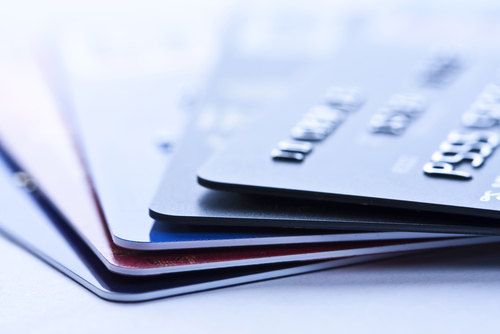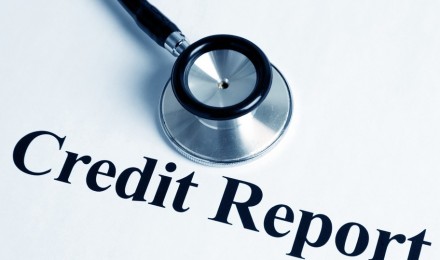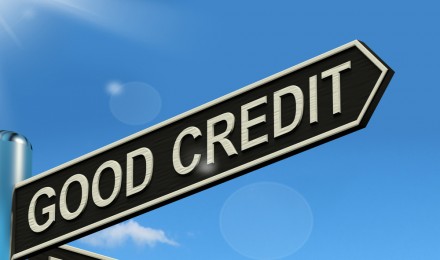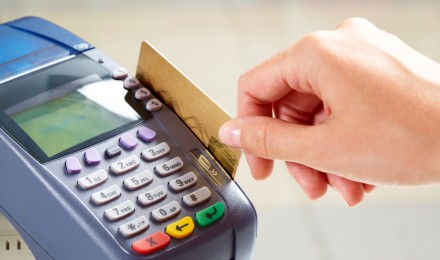Last year, Experian released data that showed the average U.S. consumer carries three open and active credit cards. Many consumers have a concern about whether they have too many credits cards and how it affects their credit score.
Credit score calculations consist of multiple inputs, including the number of credit cards, credit card balances, payments history, and other information.
The correct number of cards a person should have opened depends on individual circumstances including personal habits of managing debt and making credit card payments.
Credit cards help individuals build their credit history. However, too many credit cards can get people in over their heads. Many consumers end up destroying their credit because of high credit card balances, late payments, and other problems.
The following checks can help you know if you have too many credit cards:
Credit history
Credit reporting agencies calculate the average age of all open credit accounts, which lenders examine closely. Consumers who have a mixture of cards and older accounts can receive a higher credit score for two reasons:
- More open accounts increase the total credit limit and lower the debt-to-credit ratio.
- Lenders look for consistency and predictability. Older cards with good payment histories gives them confidence in your credit management skills.
Avoid constantly applying for new credit cards. This is a red flag for lenders and indicates that a pressing need for access to more money.
Debt-to-credit ratio calculation
The average lender considers the debt-to-credit ratio as one of the most important factors when considering applications for credit. It may account for as much as 30% of your credit score. Credit underwriters will compute this figure as though you have max out all of your credit cards.
This approach may put you in “highest risk” category for debt level. If your debt-to-credit level exceeds 35% of the total credit available, close some of the accounts to lower the ratio. It works best to keep your credit utilization at about 30% of total credit.
Review credit card balances
More than the number of credit cards, high credit card balances lowers your credit score significantly. From the perspective of lenders and credit reporting agencies, the higher the credit card balance, the more likely your risk of defaulting on your obligations.
Payment history
About 35% of your credit score is based on your payment history. Late pays refer to payments that are 30-days late. Whether it impacts your score or not depends on the lender’s policy.
Some lenders only report 60-day delinquent account to the credit bureaus. Some lenders also take under consideration the history of the account before reporting a late payment.
Managing your cards
Ultimately, it’s how you manage your credit cards—whether you have 5 or 25 cards—that has a bearing on your credit score, according to About.com guide La Toya Irby. Credit agencies calculate your credit score primarily on whether you pay your bills on time and your overall credit history. Here are three tips for managing a lot of credit cards:
- Keep balances low
- Use older cards periodically
- Make payments on time.
Financial consultant Harrison Lazarus, principal of Harrison Lazarus Advisors states the bottom line in this way: individuals who overspend should have fewer than three or no credit cards at all. People who manage their finances well and live within their means may benefit from saving more cards because they can take advantage of the many “fringe benefits” and raise their credit scores.
Last year, Experian released data that showed the average U.S. consumer carries three open and active credit cards. Many consumers have a concern about whether they have too many credits cards and how it affects their credit score.
Credit score calculations consist of multiple inputs, including the number of credit cards, credit card balances, payments history, and other information.
The correct number of cards a person should have opened depends on individual circumstances including personal habits of managing debt and making credit card payments.
Credit cards help individuals build their credit history. However, too many credit cards can get people in over their heads. Many consumers end up destroying their credit because of high credit card balances, late payments, and other problems.
The following checks can help you know if you have too many credit cards:
Credit history
Credit reporting agencies calculate the average age of all open credit accounts, which lenders examine closely. Consumers who have a mixture of cards and older accounts can receive a higher credit score for two reasons:
- More open accounts increase the total credit limit and lower the debt-to-credit ratio.
- Lenders look for consistency and predictability. Older cards with good payment histories gives them confidence in your credit management skills.
Avoid constantly applying for new credit cards. This is a red flag for lenders and indicates that a pressing need for access to more money.
Debt-to-credit ratio calculation
The average lender considers the debt-to-credit ratio as one of the most important factors when considering applications for credit. It may account for as much as 30% of your credit score. Credit underwriters will compute this figure as though you have max out all of your credit cards.
This approach may put you in “highest risk” category for debt level. If your debt-to-credit level exceeds 35% of the total credit available, close some of the accounts to lower the ratio. It works best to keep your credit utilization at about 30% of total credit.
Review credit card balances
More than the number of credit cards, high credit card balances lowers your credit score significantly. From the perspective of lenders and credit reporting agencies, the higher the credit card balance, the more likely your risk of defaulting on your obligations.
Payment history
About 35% of your credit score is based on your payment history. Late pays refer to payments that are 30-days late. Whether it impacts your score or not depends on the lender’s policy.
Some lenders only report 60-day delinquent account to the credit bureaus. Some lenders also take under consideration the history of the account before reporting a late payment.
Managing your cards
Ultimately, it’s how you manage your credit cards—whether you have 5 or 25 cards—that has a bearing on your credit score, according to About.com guide La Toya Irby. Credit agencies calculate your credit score primarily on whether you pay your bills on time and your overall credit history. Here are three tips for managing a lot of credit cards:
- Keep balances low
- Use older cards periodically
- Make payments on time.
Financial consultant Harrison Lazarus, principal of Harrison Lazarus Advisors states the bottom line in this way: individuals who overspend should have fewer than three or no credit cards at all. People who manage their finances well and live within their means may benefit from saving more cards because they can take advantage of the many “fringe benefits” and raise their credit scores.







